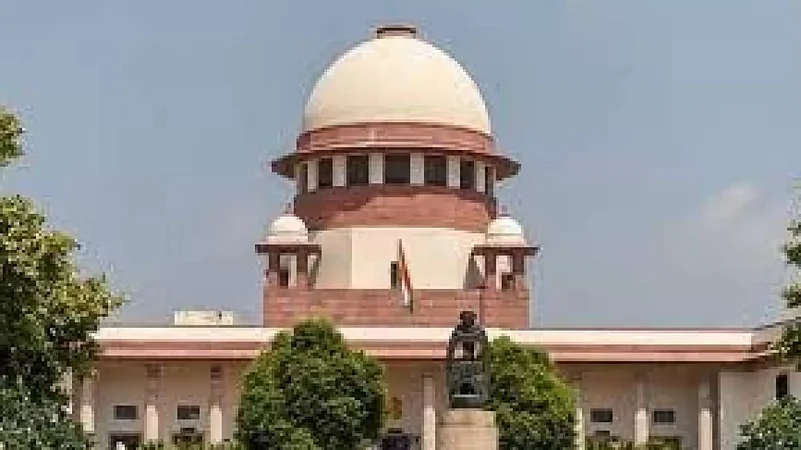Supreme Court declared that judges are obligated to maintain discipline and should refrain from taking up any case unless it is specifically assigned by the chief justice as it addressed an appeal challenging a decision made by the Rajasthan High Court.
The apex court, while denouncing the act of entertaining a case not explicitly designated by the chief justice as "an act of gross impropriety," expressed bewilderment at the consideration of a civil writ petition aimed at consolidating multiple First Information Reports (FIRs).
A panel of justices, comprising Abhay S. Oka and Pankaj Mithal, presided over the appeal contesting the high court's May order, which had enjoined any coercive actions against three individuals linked to eight FIRs.
The panel observed that these three individuals initially sought relief from the high court for the quashing of FIRs, but interim relief was not granted. Subsequently, they submitted a separate civil writ petition to consolidate the eight FIRs.
Ambalal Parihar, the appellant who instigated the filing of six FIRs against the three individuals, contended before the apex court that the filing of a civil writ petition was an invented maneuver designed to circumvent the roster judge who had denied interim relief.
The bench noted, "This is a classic case of forum hunting by the second to fourth respondents," and further added, "Thus, this is a case of gross abuse of the legal process."
It noted in the roster notified by the chief justice, there was a separate roster for criminal writ petitions.
"If the courts allow such sharp practices, the roster notified by the chief justice will have no meaning. The judges have to follow discipline and ought not to take up any case unless it is specifically assigned by the chief justice," the bench said in its October 16 verdict.
It said a judge can take up a case provided either the cases of that category have been assigned to him as per the notified roster or the particular case was specifically assigned by the chief justice.
"Though a civil writ petition was filed, the judge ought to have converted into a criminal writ petition which could have been placed only before the roster judge taking up criminal writ petitions," the top court said.
The bench said it was sure that this conduct of the three litigants will be considered by the concerned court taking up petitions under section 482 of the Code of Criminal Procedure (CrPC) seeking quashing of the FIRs.
"This is a fit case where the second to fourth respondents must be saddled with costs. We quantify the costs amount at Rs 50,000," it said, adding, they would pay the cost to the Rajasthan State Legal Services Authority within a month.
While allowing the appeal, the bench held that action of filing the civil writ petition was nothing but a "gross abuse of process of law" and it was a classic case of forum hunting.
"We direct the registrar (judicial) of the Rajasthan High Court to place a copy of this order in all eight petitions under section 482 of CrPC filed by the second to fourth respondents for quashing First Information Reports," it said.


























